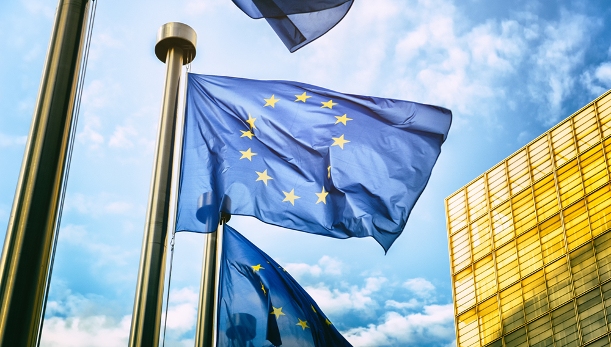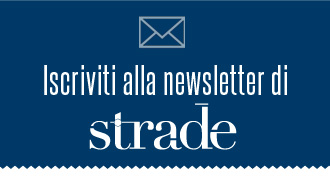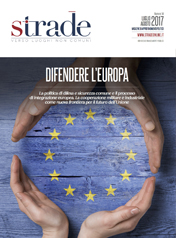Common defence and security, the return of politics
Luglio/agosto 2017 / Monografica
The increasingly urgent EU common defence project must go hand in hand with a renewed centrality of politics. Only with wide-ranging reforms can Europe establish the forms and boundaries of its own sovereignty.

It was October 1st, 2002 when Tony Blair, British Prime Minister of five years and five months, faced the Labour congress in Blackpool, proving perhaps to be the most difficult for him. He spoke at length of global horizons and Europe from the British point of view, in terms of achievements that had been reached and perspectives for the future. The Cold War is over, he said, the United States remains the sole superpower. America is secure and proud of itself, but at the same is time the subject of rancour. Europe is an economic power but lacks political consistency, Russia is freeing itself from its past but it’s still paying the consequences.
With regards to China and India, said the then-Prime Minister, power is only a question of time. Japan is changing, Latin America is struggling, Asia is emerging. Africa is impoverished, the Middle East unstable. In order to contribute to the construction of a new world, Great Britain must be part of it, our friendship with America is a strong point as is our participation in Europe. In his speech, Tony Blair underlined the importance of daring. While reflecting on the fact that the Euro would also be destined for Great Britain, he asked if common European defence would be a rival or an ally of NATO.
Fifteen years have passed and the global situation, especially in crisis areas, has not only changed, but has worsened. Europe has experienced a period of significant economic and institutional crisis and is now becoming familiar with the phenomenon of mass migration. In recent times the UK has been wounded by terrorism in the Manchester and London attacks and not only did it not enter the Euro, it has initiated procedures to exit the European Union. Prime Minister Theresa May asked for early elections in order to exit with a strong political mandate but instead only gained political instability as a result of surprise advancements of the Labour party for which the young largely voted. The newly elected President of the United States Donald Trump has said that NATO will no longer exist as we know it – Europe is facing a historic moment, it must grow, it must learn to make it on its own, it must find a common equilibrium and once again, it must dare.
The new project for a European Union must certainly take into account the economy and employment, but also development and especially industrial research. It absolutely must transform the frightened debate of a common defence policy into a genuine project that can be promptly implemented with both financing and precise rules. This is one of the points that really requires a strong political will and at the same time recognizes that American protection may no longer be available, an important perspective for European industrial development and an answer to the fears of EU citizens who are facing ever-more security concerns as a result of conflicts in neighbouring areas: Eastern Europe, the Middle East and North Africa. These are problems that have helped develop and risk furthering populist and nationalist movements.
An essay by Lorenzo Pecchi, Gustavo Piga and Andrea Truppo published earlier this year clearly demonstrates how the construction of a serious and efficient common security policy could re-launch the idea of a cohesive Europe to address global challenges. The mobilization of institutions in the development of a common armed forces would put an end to the use of 154 different weapons systems and would have obvious implications in terms of demand and industrial supply, allowing Europe to compete on the international market.
The fragmentation of military instruments also influences research and development spending, which is largely managed at the national level and is ridden with unnecessary duplications and resource dispersion. The European industrial sector is presently characterized by persistent fragmentation. When nearly 90% of high-tech equipment and instruments are managed at the State level, the development of a continental production structure where all national companies can actively participate becomes impossible. And therefore the potential benefits of productive synergies and economies of scale are not fully exploited, lacking the critical mass to reach a significant level of innovation, wasting European tax contributions, all without considering the heterogeneity and protectionist overlaps that have blocked integration until now. For Europe, such an operation would represent a formidable tool of foreign policy and development with respect to the areas where conflicts that lead to mass migration arise.
We are in a situation where many are asking who is currently governing the world. Directly related to terrorism and migration is the fact that there are a growing number of regions where no true State power precedes. We can think of Syria, Afghanistan and Iraq. To cite Heinrich Geiselberger, we are in a situation of great regression and to resolve it, or even just to confront it, politics must foster the development of real transnational institutions capable of finding global answers to global problems. At the same time, a corresponding mentality would be necessary: the cosmopolitan feeling as proposed by Ulrich Beck.
Italy has a great opportunity before it and should not wait for others to take the first step: the construction of this fundamental pillar of the European Union requires an important political impetus. The main question to be asked is, which tools (if they exist), can elevate politics and remove it from the cultural subordination to which it is tied? It is clear, in fact, that in terms of ideas, politics has slid ever-closer to the margins of the public debate, consistently losing consideration, if not being outright discredited. Is it therefore legitimate to question whether this is an irreversible shift or if it is still possible to do something? The lesson of these times is that the presumed inferiority complex of politics with respect to other fields of knowledge, for example, economics, is completely unjustified.
For nearly two decades we have been told that the economy, or better yet, finance, doesn’t need politics, which would at best be limited to complementing the will of the markets, which in turn would be self-regulating. Without fear of being refuted we can assert that the outcome of such an approach is tangible: the economic crisis has revealed the limitations of economics and finance and the results of self-regulation - already in itself very difficult – in finding a solution to the devastating social crisis that they have caused.
To this we must add the lack of a vision in politics. Decisions are not taken with a prospective of twenty or more years, but instead are aimed at resolving momentary problems, the so-called day-by-day, all too often held hostage by fears related to polls which are later revealed to be untrue. The great regression that is unfolding today under our eyes seems to be the result of an interaction between the risks of globalization and those of neoliberalism. Problems resulting from the inability of politics to cope with global interdependencies meet societies that are unprepared for confrontation on the institutional or cultural level.
Politics must therefore rediscover its role and reappropriate it, and we must rediscover the meaning of politics and have the courage to free its potential precisely in order to reaffirm its role in our country, in Europe. A recent piece by British political scientist Matthew Flinders highlights the concept that the defence of politics should be indented as the defence of democratic politics, in a realistic analysis in which shortcomings are associated with the idea of expectations. The defence of democracy, and therefore of high-level politics, means defence from the unregulated and dominant market, but also defence from de-politicization, crisis, from the way that politics is treated by the media.
The mistake was allowing politics to lose its centrality in the public discourse and therefore preventing solutions, with the negative result of no longer being able to protect people and their daily needs, and which in turn has resulted in the loss of the ability to look around and identify new paths for future generations, sometimes riding fears – like that of mass migration or of crises invoked by the inability to create jobs – all too often blaming the EU and its regulations.
Can this be changed? Our perspective is both urgent and necessary. Populism and its leaders, writes Indian-American anthropologist Arjun Appadurai, knows how to aspire to national leadership in a time when national sovereignty is in crisis. It is the most evident symptom of this crisis and the fact of the matter is that no modern Nation State controls its own national economy. This is true for the richest and the poorest of countries. The American economy is in the hands of the Chinese, while the Chinese economy depends on raw materials from Africa, Latin America, and other regions of Asia. Everyone depends in some way on the petroleum of the Middle East and ideally all modern Nations depend on sophisticated arms from a small number of rich countries.
Politics then must not only return to the centre of public life, conquesting the space that has been taken from it, but must also, and this is certainly the most difficult part, return to play a fundamental role in designing the society of the future. The European governance crisis and the similar decline in trust of EU institutions by citizens – but at the same time the enthusiastic response of voters to a decidedly pro-European politics leading to the election of Emmanuel Macron in France – demonstrates that without politics Europe itself does not exist. Dominant technocracy impedes consideration of using instruments that already exist, and that are foreseen by Treaties, the fruit of political mediation, to federally initiate the necessary reforms with important implications for Member States.
Embracing the recent invitation of European Commission President Jean Claude Juncker, Italy must find the political force to tackle this issue, to be a promoter of a genuine common security policy of the European Union which is not only the arms market, as could easily be objected to, but consists of boosting dual-use industrial research, creating jobs, contributing to finding solutions for humanitarian crises that inevitably have repercussions for both Europe and Italy - a response to the feeling of insecurity of citizens who see immigration, for example, as a risk to public order.
INDICE Luglio/agosto 2017
Editoriale
Monografica
- Investire in sicurezza: il fondo Ue per la difesa
- Common defence and security, the return of politics
- Defence as a currency, a European sovereignty
- Europe, time to unite forces
- Difesa e sicurezza comune, la rivincita della politica
- A possible EU army under current treaties
- La difesa come la moneta, una sovranità europea
- What defence for what Europe?
- Europa, è il momento di unire le forze
- Space policies, economic internationalization and EU integration
- Un esercito comune e comunitario. L’europeizzazione possibile a trattati vigenti
- A United Europe for Defence? Increased safety and lower costs
- Quale difesa per quale Europa?
- Investing in security: the European Fund for Defence
- Le politiche spaziali, l’internazionalizzazione e l’integrazione dell’Ue
- Europa della difesa? Costa meno e ci rende più sicuri









